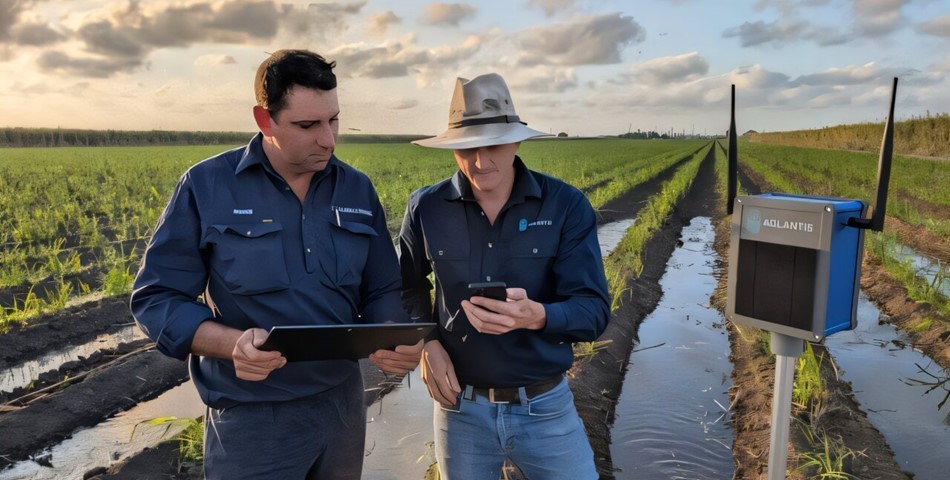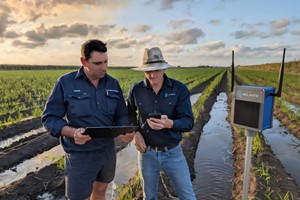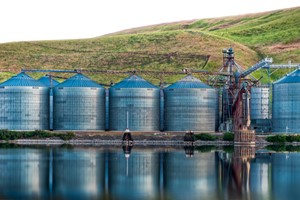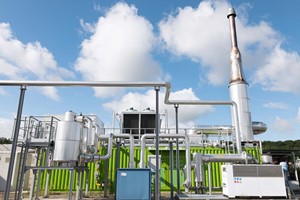A groundbreaking AI-powered smart irrigation system is revolutionizing sugarcane farming while contributing to the protection of the Great Barrier Reef. Developed by La Trobe University in collaboration with Queensland-based ag-tech company Aglantis, the system leverages the Internet of Things (IoT) to automate water pump management and monitor environmental factors like sunlight, temperature, and humidity, all without human interaction.
Originally envisioned as a tool to reduce fertilizer run-off from farms into the Great Barrier Reef, the system's potential has expanded significantly with advancements in technology. Aglantis Managing Director Luke Malan described the innovation as "limitless" in its application, emphasizing its ability to conserve water, energy, and resources while optimizing farming practices.
"It essentially takes the guesswork out of farming," Luke said. "With growing pressures on profitability, it's more imperative to know what you're doing and how you can do it better. This flips conventional thinking on its head and opens the doorway to new possibilities."
The system, designed by IoT researchers Kamyar Karimi and Aravindan Madasamy under the guidance of Professor Wei Xiang, is housed in a one-meter plastic tub at La Trobe University's Digital Innovation Hub in Melbourne. It features ultra-compact design, precision valve control, and adaptability to any degree of irrigation requirements. By automating labor-intensive processes, it not only reduces water wastage but also cuts down on labor costs and enhances farm decision-making precision.
"This technology represents a major shift towards data-driven, sustainable agriculture where AI and IoT optimize every drop of water for maximum farming efficiency," Kamyar explained. Aravindan added that the system allows farmers to conserve resources, save time, and focus on other priorities without the burden of manual management.
The smart irrigation system is currently being trialed on an 80-hectare plot on Mark and Andrew Castelanelli’s sugarcane farm in Queensland’s Burdekin region. Mark, a farmer with over five decades of experience, praised the system’s precision and time-saving capabilities. Previously, he would drive 15,000 kilometers annually to manage irrigation across his farm. Now, he sees this as a transformative leap for the sugarcane industry.
"There’s endless opportunity and the power of computing is just getting smarter," Mark remarked, noting that this system is the first purpose-built solution tailored specifically for sugarcane farming.
Beyond its immediate agricultural applications, La Trobe University envisions broader impacts for the technology. The University, which has also partnered with the Australian Institute of Marine Science (AIMS) to create the world’s first AI-powered 3D digital twin of the Great Barrier Reef, aims to push its "AI-first" approach across various fields.
Professor Xiang, who serves as the Cisco Research Chair and Director of La Trobe's Cisco Center for AI and IoT, highlighted the system's broader implications. "Now we’ve proven the technology, the next step is to add additional features to improve productivity and crop yields through leveraging cutting-edge AI technology," he said. "This will make farming on the whole more sustainable."
Future updates to the system could include intelligent sequencing for irrigation, predictive maintenance, and AI-driven recommendations for crop selection and yield optimization. By analyzing soil profiles and historical data, the system could continuously adapt to seasonal patterns and crop responses, further enhancing agricultural efficiency.
As the first commercial product from La Trobe’s Cisco Center for AI and IoT, the smart irrigation system underscores the transformative power of industry-driven research. According to Malan, the product’s affordable and scalable design opens the door for more farmers to adopt sustainable, technology-enhanced practices, paving the way for a more efficient and environmentally friendly future in agriculture.













